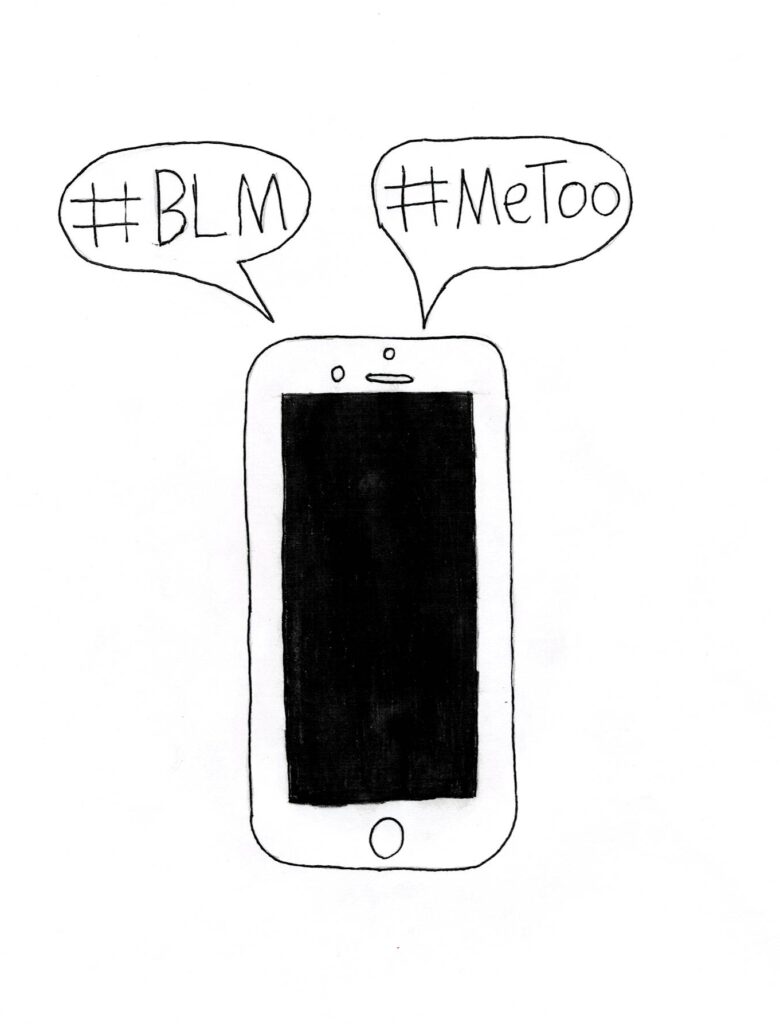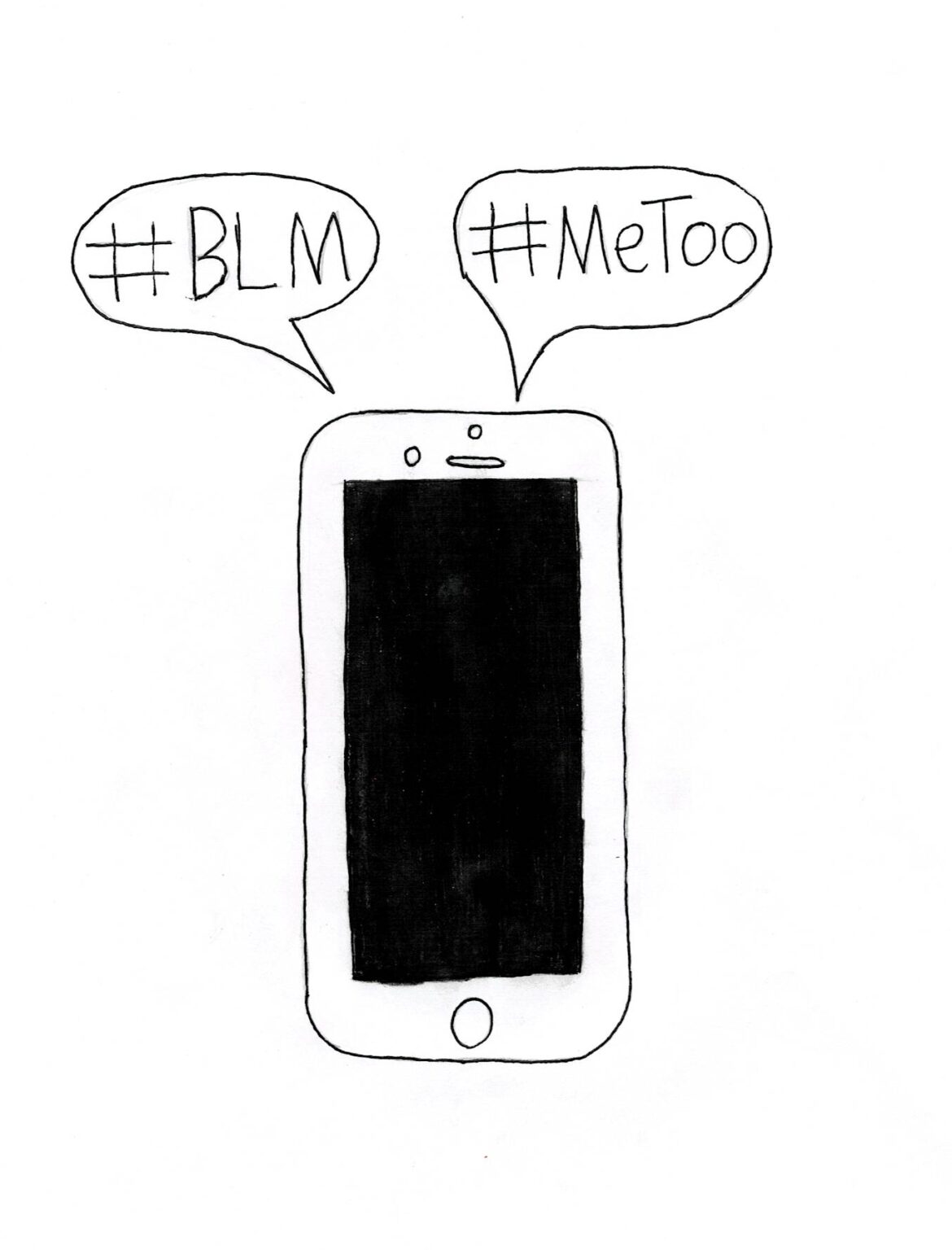
Social media is an incredibly powerful tool used for a variety of things including communication, achieving one’s financial goals, and indulging in mindless pleasure. With the current public health crisis, people started taking up social media by the masses.
According to a survey conducted by the analytics firm The Harris Poll, there has been a 10% increase in all U.S. adults who are engaged in social media since the beginning of the pandemic.
Since the start of the COVID pandemic, social justice movements have re-emerged with even more vitality. This renewed interest in social justice, combined with a pandemic that prohibits public meetings, has made social media even more important to social justice activism.
What started as a difficult summer with COVID and heightened political drama quickly intensified with a set of disturbing social media events that have affected our community at Roosevelt.
This summer, on July 7, a group of Roosevelt students was exposed for making insensitive comments and graphic jokes about race and sexual assault. These incidents sparked a massive wave of additional people coming forward with allegations as well as general conversations about important and often difficult topics on social media.
Roosevelt students in particular were at the forefront of this social media movement, exposing the untold stories that occurred in the halls of school as well as within the homes and private lives of students in our community.
According to The New York Times, incidents like the ones at Roosevelt have been happening all across the U.S. In California, an Instagram account that exposed racist behavior amassed thousands of followers within a 24 hour period.
At Roosevelt, some of the accounts of students who were exposed amassed over 5,000 followers before their deactivation. Most others had to make their accounts private.
In the aftermath of those initial incidents, one big topic that is getting an increasing amount of attention is the idea of accountability: specifically how to hold friends, teachers, peers, family members, and even ourselves accountable for things said and done that may have harmed people in the past. Through this focus on accountability, the ideas of re-education and reform emerged as ways to combat hate.
Some people are thrilled with the idea of exposing people. Skai Jackson, a young actress, received thousands of daily Twitter messages from her followers asking for her to expose people from their local communities on her social media. According to InStyle magazine, she said that it was her duty to use her platform to help expose racism.
But what does all of this mean? How does exposing someone’s past behaviors contribute to bettering our community?
According to multiple surveys conducted by the BBC, the way people are raised and the ideas that surround them during their childhood affect what they believe and how they act at school and in the world. The surveys suggests that intolerance is due to a lack of cultural understanding, and that hatred is born from ignorance.
Growing up in an environment where conversations about race and other similar issues didn’t occur can create deeper racial divides and have other consequences.
Issues like racism are often understated as is their reach. The Seattle Times released a demographic report of Seattle high schools, which highlighted racial disparities between neighborhoods in the north and south and in their respective schools.
Less than five percent of Roosevelt high school students are black, as opposed to Franklin high school in South Seattle, where over twenty-seven percent of the student body is black. These demographic differences result from formerly legalized segregation, stemming from issues dating back to Jim Crow laws and the founding of our nation.
Today, Seattle is a heavily segregated city. This affects the way students and citizens learn about and experience racism.
Conversations about racism, sexism, homophobia, transphobia, islamophobia, and other kinds of hate will never be easy; acknowledging problems in society, injustices throughout history, and keeping all this knowledge in mind, every second of every day can be difficult. We must make lifting each other up, amplifying the voices of those who need to be heard, and giving people room to grow while acknowledging their mistakes, a possibility.
Making mistakes is a part of life. Allowing oneself to make mistakes and recognize and own up to them is incredibly important. While it may be difficult to sort out the more superficial forms of activism from the real ones, the events of the summer have opened the eyes of Roosevelt students to injustices that occur daily.
Since this summer, Roosevelt teachers and staff have reached out to students and parents, addressing what happened and what has happened in the past at Roosevelt. Roosevelt staff have started dialogues about accountability, creating virtual meetings, and Q&As with school board officials.
The events of the summer will hopefully start to transform Roosevelt into a school of anti-racist, activistic, and united students. This transformation will take time and be difficult, but it is incredibly necessary and important.
